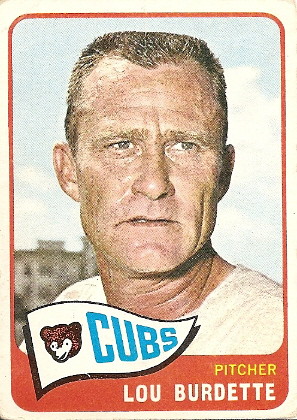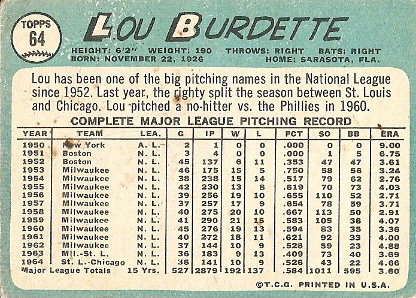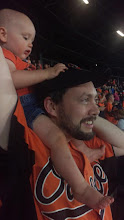
After graduating from high school in his hometown of Nitro, West Virginia, 17-year-old Lew entered the Armed Forces in 1944 in the midst of World War II. After returning home and spending one year at the University of Richmond, he signed with the Yankees in 1947. He climbed steadily through the New York organization, posting his best minor league season in 1948, when he went 16-11 with a 2.02 ERA for the Quincy Gems. The Yankees finally gave him a brief look in 1950, but sent him to the Pacific Coast League the following year. From there, they traded him to the Boston Braves for Johnny Sain, tossing in $50,000 for good measure.
In his first two full seasons with the Braves (spanning the club's 1953 move to Milwaukee), Lew was an effective reliever, posting earned run averages of 3.61 and 3.24, and even won 15 games in 1953 as the team began giving him more starts. The following year the Braves moved him to the rotation, and he spent the next decade using impeccable control, a variety of offspeed pitches with late movement (including a spitball, according to popular belief), and the occasional brushback pitch to become one of the best pitchers of his generation. After winning 15 and 13 games in his first two full seasons as a starter, Burdette really broke through in 1956, going 19-10 with 16 complete games and a league-best 2.70 ERA. He received a bit of MVP consideration as the Bravos won 92 games.
1957 was a banner year for Lew. His regular-season performance was a bit off the pace of his totals for the prior year, but he was selected to his first All-Star Game. Milwaukee made it to the World Series, where the righty showed the Yankees first-hand what they were missing. He went the distance three times, including back-to-back shutouts in a three-day span (he stepped up when Warren Spahn was stricken with the flu). For holding the Bronx Bombers to 21 hits in 27 innings and crafting an 0.67 ERA in the Braves' seven-game Series win, Burdette was named MVP of the Fall Classic. The following year was probably his best all-around effort: 20 wins, 10 losses, 19 complete games, and a 2.91 ERA, followed by a return trip to the World Series. This time New York figured Burdette out, beating him in Game Five and Game Seven to take the trophy.
1959 brought 21 wins and two more All-Star Games for Lew, as well as one unforgettable game. On May 26, he outdueled Harvey Haddix of the Pirates by twirling a 13-inning, 1-0 shutout. While Burdette scattered 12 hits, his counterpart defined the hard-luck loss by pitching twelve perfect frames before faltering. An error and an intentional walk brought Joe Adcock to the plate, and he hit Haddix's final offering for a three-run home run. A jubilant Adcock passed Hank Aaron at second base and was ruled out, his homer changed to a ground-rule double. The Braves' first hit of the game was the only one they needed.
Burdette pitched his own no-hitter in 1960 against the Phillies, plunking Tony Gonzalez to deny himself a perfect game. He won 19 games that year and 18 the following season before slipping to 10-9 with a 4.89 ERA in 1962. The following year was his thirteenth as a Brave, but he would finish it as a Cardinal. This signaled the nomadic phase of Lew's career. Leading up to his retirement at age 40 in 1967, he also played for the Cubs, Phillies, and Angels. He finished with 203 wins and 144 losses, including 179 with the Braves. He completed 158 games, and his 1.84 walks per nine innings rank him fifth among all pitchers since 1920 (minimum 3,000 IP). After wrapping up his playing career, Lew worked as a scout and then as a Braves coach before becoming a public relations specialist for an Athens, Georgia cable company. He passed away in 2007 at age 80, a victim of lung cancer.
Fun fact: Lew set a record by allowing no walks in his nineteen appearances in 1967.



No comments:
Post a Comment